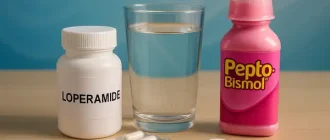Dealing with an anal fissure can be an uncomfortable and sometimes painful experience. It can significantly impact a person’s daily life, including simple activities like defecation. We will explore the level of comfort when defecating with an anal fissure, as well as some helpful tips to alleviate discomfort and promote healing.
Understanding Anal Fissures
An anal fissure is a small tear in the lining of the anus, resulting in pain, bleeding, and discomfort during bowel movements. These fissures are often caused by factors such as constipation, diarrhea, childbirth, or even ongoing bowel movements with hard stools. While they can vary in severity, they tend to heal within a few weeks with proper care.
Comfort Considerations
When defecating with an anal fissure, comfort becomes a critical concern. The pain experienced during bowel movements can make the whole process distressing, potentially leading to anxiety and avoidance. Interestingly, this avoidance can further intensify the discomfort and even prolong the healing process.
Tips for Comfortable Defecation
- Fiber-Rich Diet: Consuming a diet high in fiber, such as fruits, vegetables, whole grains, and legumes can help soften the stool, assisting in a more comfortable bowel movement. This can help reduce strain and pressure on the anal fissure.
- Hydration: Maintaining proper hydration is essential for overall digestive health. Drinking enough water can help prevent constipation and ease bowel movements, allowing for less discomfort during defecation.
- Sitz Baths: Taking warm sitz baths for about 10-15 minutes, a few times a day, can provide relief and promote healing. The warm water helps relax the anal muscles and soothe the fissure area.
- Stool Softeners/Laxatives: In certain cases, stool softeners or laxatives, recommended by a healthcare professional, may be utilized temporarily to help alleviate constipation and facilitate smoother bowel movements.
- Pain Relief Measures: Over-the-counter pain relievers, such as topical ointments or creams, can provide temporary relief from pain and discomfort. However, it is crucial to consult a healthcare professional before using any medications.
Seek Medical Advice
It is essential to consult a healthcare professional if you suspect you have an anal fissure or experience persistent pain. They can provide a proper diagnosis and recommend appropriate treatment options based on the severity of your condition.
Conclusion
While defecating with an anal fissure can be uncomfortable, implementing certain measures can help alleviate pain and facilitate a more comfortable experience. Lifestyle modifications, such as a high-fiber diet, adequate hydration, sitz baths, and appropriate pain relief measures, can contribute to a smoother healing process. Remember to consult a healthcare professional for an accurate diagnosis and tailored treatment plan, ensuring a timely recovery and restored comfort.
About the Author
Reyus Mammadli is the author of this health blog since 2008. With a background in medical and biotechnical devices, he has over 15 years of experience working with medical literature and expert guidelines from WHO, CDC, Mayo Clinic, and others. His goal is to present clear, accurate health information for everyday readers — not as a substitute for medical advice.







